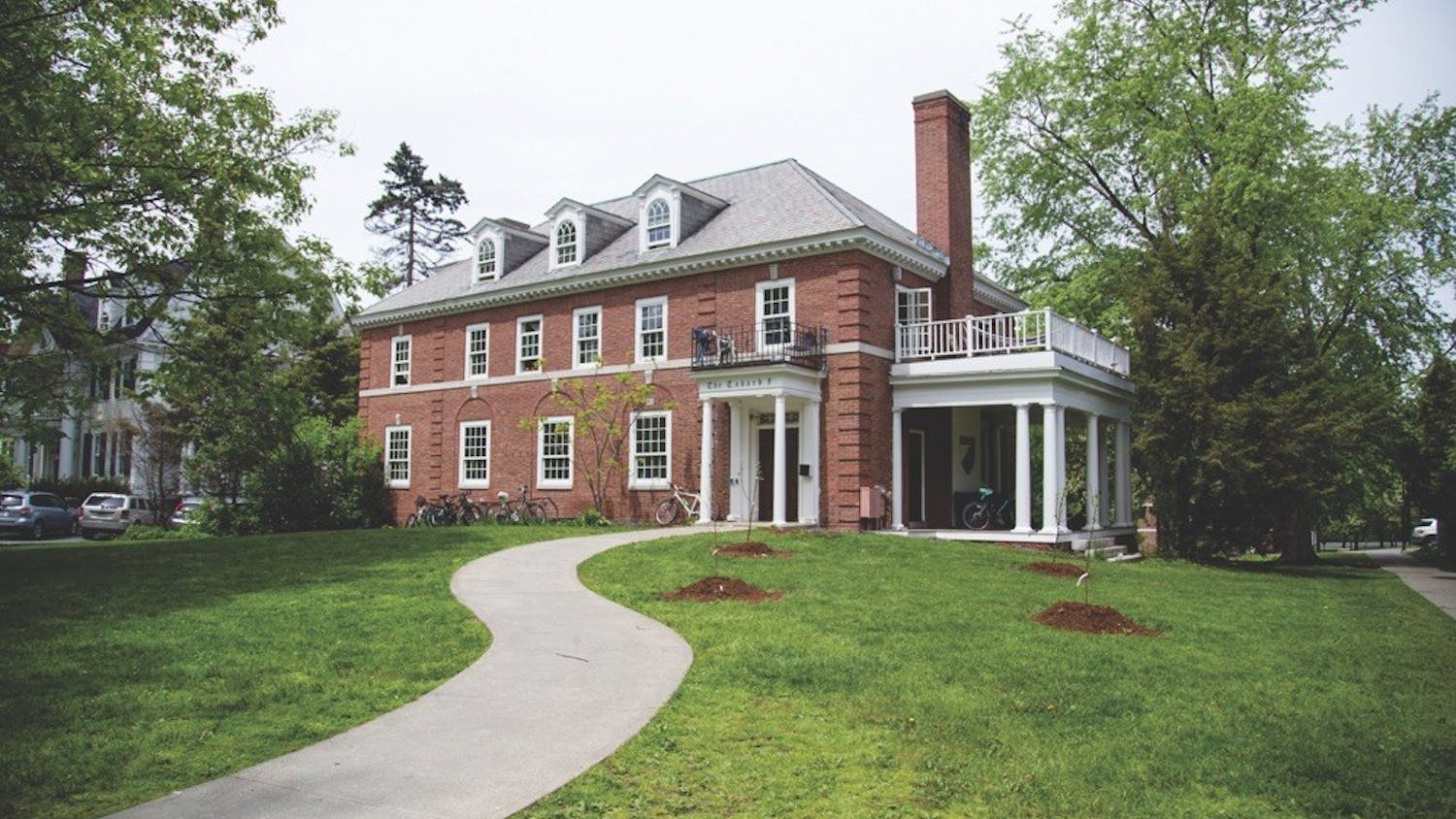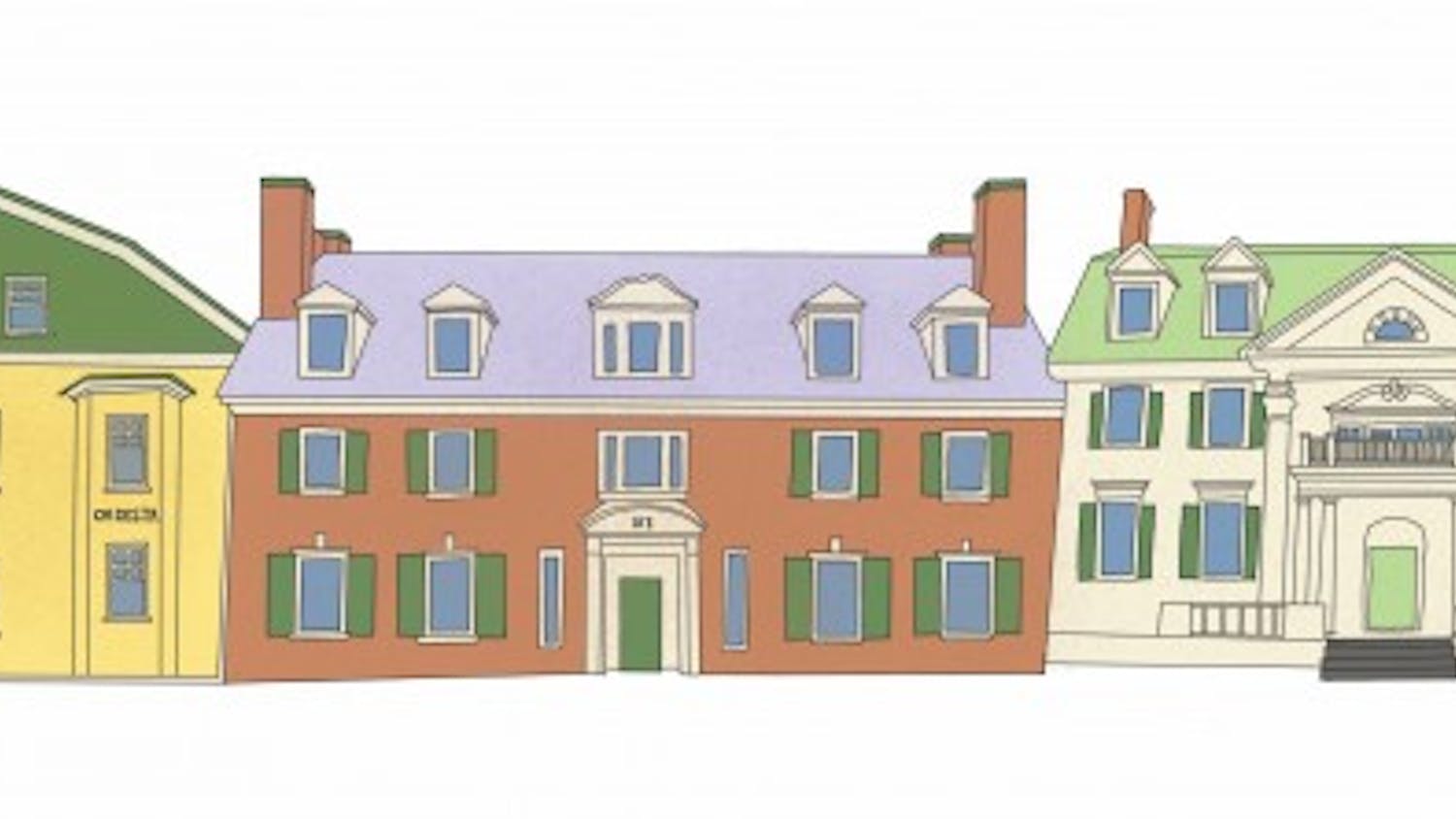Professional kitchen environments heighten many not-so-sought experiences and make a whole lot of mess, but nonetheless turn orchestrated chaos into something beautiful that nourishes you and those you care about. Before and during my time at Dartmouth, I cut my teeth (and my fingers) in professional kitchens in London, Portland, ME and Wellesley, MA. I was 17 when I worked my first shifts as a line cook. When I reminisce on my time in these spaces, my heart rate quickens, and I grow tense as if to brace myself standing in the path of a cresting wave. In the throngs of the professional kitchen environments where I worked, I could not help but feel small. I could not help but feel a bit out of place. And I could not survive unless I believed in myself, asked for assistance when I needed it, learned from my failures and celebrated my successes.
Dartmouth can be a lot like a professional kitchen, but Dartmouth at its best looks exactly like a meal cooked slow and shared at a long table full of friends.
It’s winter term, and like most Dartmouth students come end-February, I’m sick. Perhaps unlike most Dartmouth students, when I get sick, I think of the soup I’m going to make. But, to make a soup at Dartmouth, one needs four things that are already hard to come by here: ingredients, equipment, space and time. While cooking is an essential part of how I demonstrate care to my communities and myself, I know that to cook at Dartmouth represents a convergence of privileges. If it weren’t for my decision to live off campus starting from sophomore summer, my ability to drive, access a vehicle and exercise confidence in the kitchen, my time at Dartmouth would’ve looked a lot less like a homestead magazine. That being said, while cooking here is not easy, people still do it, and do it so well. Weekly house dinners with LLCs, feeds, chili cook-offs, O-Farm Pizza dinners, clubs — you name it, people do it. Even with the odds stacked against campus cooks, we still do it because cooking at Dartmouth is care at Dartmouth.
Coming to Dartmouth, one of my goals was to learn as much as I could about food and food systems. Also, coming to Dartmouth, I quickly became known as someone who cooks. Everywhere I went, people asked for opinions on restaurants in the Upper Valley, what I thought of DDS, what it was like to work in kitchens, etc. I’ve been “cold-blitzed” by individuals expressing interest in learning techniques and by individuals looking for private chefs. When this happened, I wondered if I would ever find the time and space to process how cooking at this level made me feel.
I wanted answers to the questions I was thinking about while shelling English peas and finely mincing shallots. While classes were helpful in thinking about systemic issues relating to food access, farming, agriculture and food policy, it was the conversations with my peers and friends that were truly illuminating. Friends shared family recipes, shared their favorite food stories and told me about their family restaurants and experiences working in such spaces. Friends talked excitedly about their cultural foodways. This was a term I had no prior knowledge of when I first came to Dartmouth, but it came to life over my time here through conferences like Cows, Land and Labor and Foodways in Indigenous Communities, the work of the Organic Farm, the Real Organic Movement and an amazing field-trip experience to the Northeast Organic Farming Association of Vermont.
Realigning my energies to focus on cooking in ways that take the stress of managing professional kitchen spaces has led me to projects that allow me to reflect on cooking with more joy than dread. With a collected understanding that access to cooking and groceries at Dartmouth is one way that food and power materialize on this campus, I cooked and made space and repeated.
I cooked dinner parties, I cooked with friends, I cooked for professors and I cooked alone. I cooked with my roommates, I cooked for strangers. I cooked at the skiway, I cooked at churches, I cooked at the O-Farm and I cooked at the Lodge. I cooked in cabins, I cooked at off-campus catering kitchens and I cooked in apartments. I cooked in trangias, and I cooked on outdoor campus grills. I cooked with chefs at Dartmouth, and I cooked with my lola before she passed. I cooked at the Culinary Learning Center in Lebanon. I cooked in Casque and Gauntlet’s basement. I cooked in dorms, in LLCs and now, I mostly cook at home and with the Third Kitchen Project.
Coming to college with a passion is powerful. However, coming to college with a passion alone can be blinding. With food insecurity at Dartmouth and other colleges nationwide becoming a pressing issue, cooking and access to ingredients — and culturally specific ingredients — has to be so much more than just a community activity or a passion sponsored by a campus club or center. Cooking and access to ingredients at the College must become part of the food landscape accessible to Dartmouth students.
In reflection, food and cooking is my sweet spot that combines my passions at Dartmouth. Learning that about myself is enough to consider my time at Dartmouth successful. I will continue to hone that sweet spot to manifest compassion, gratitude and care to share with those around me the answer to why I cook — it never mattered how.




